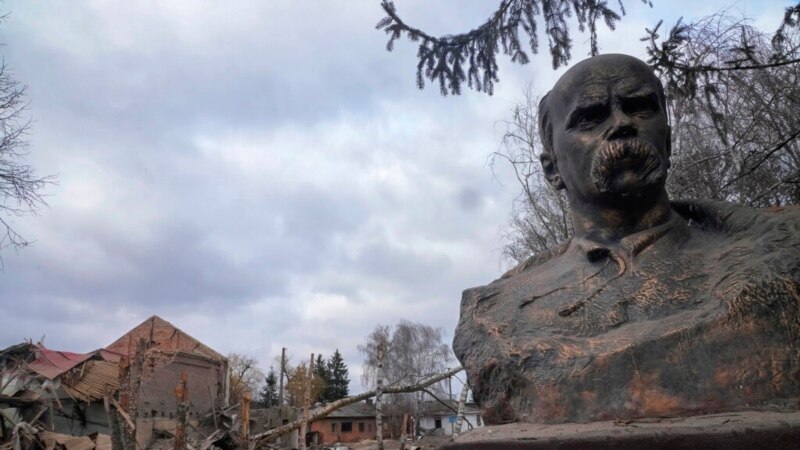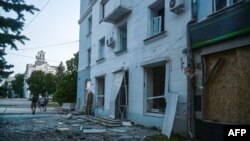This website uses cookies so that we can provide you with the best user experience possible. Cookie information is stored in your browser and performs functions such as recognising you when you return to our website and helping our team to understand which sections of the website you find most interesting and useful.
 NEW YORK —
NEW YORK —
Ukraine's deputy minister of culture said Friday that her country's heritage is under attack by Russia and must be protected.
"The president of Russia, Mr. Putin, announced that Ukrainian culture and identity is a target of this war," Kateryna Chueva, deputy minister of Culture and Information Policy of Ukraine, reminded an informal meeting of the U.N. Security Council.
She said the Russian bombs and missiles that have damaged and destroyed Ukrainian cities also have hit scores of important cultural sites.
The U.N. Educational, Scientific and Cultural Organization (UNESCO) has verified damage to 163 cultural sites since Russia's Feb. 24 invasion. They include religious sites, a dozen museums, 30 historic buildings, 17 monuments and seven libraries. More than half are in the Kharkiv and Donetsk regions. UNESCO says cultural sites in the capital, Kyiv, have also sustained considerable damage.
Chueva says the figure is much higher. She told the council her ministry has verified damage and destruction to at least 423 objects and institutions of cultural heritage.
Destruction of cultural heritage is a potential war crime and a violation of the 1954 Hague convention for the protection of cultural property in conflict, of which Russia is a signatory.
Chueva noted that destruction of cultural heritage is not limited to structures and objects.
"Every single person is a bearer of culture, of knowledge and traditions," she said.
The director of UNESCO's World Heritage Center, Lazare Eloundou Assomo, urged Russia to take precautions to protect cultural heritage sites. He said from Paris that the agency has also worked with Kyiv to take steps to clearly mark protected sites and is verifying reports of damage, including through satellite imagery.
"The verification on the ground will enable UNESCO to unveil the scale of damage to cultural sites, as well as to verify the impact of the war on movable cultural property and to prepare for future recovery," he said.
UNESCO is also providing technical and financial support to the cultural sector and plans to help Ukraine train law enforcement officials in the prevention of trafficking of cultural heritage.
Russia's representative at the meeting, Sergey Leonidchenko, denied that Moscow targets heritage sites and says coordinates are provided to their military in advance in order take precautions.
He accused Kyiv of targeting Russian culture and language even before the February invasion.
"Demolition of monuments to Russian writers, poets, musicians and World War II heroes, renaming streets devoted to them, confiscation of school textbooks, Russian language and Russian literature in general," Leonidchenko said. He said the Kyiv regime wants to "rewire people" to forget who they are.
Several Ukrainian cities did rename some streets and squares associated with Russia following the invasion, and a Soviet-era monument symbolizing friendship between Russia and Ukraine was dismantled in Kyiv.
The U.S. representative said Moscow has been destroying parts of Ukraine's heritage in an effort to rewrite history, dating back to its invasion of eastern Ukraine and the annexation of Crimea in 2014.
"This campaign has been in motion since 2014, when Russia began to remove artifacts, demolish grave sites, and shutter churches and other houses of worship in the Donbas region and Crimea," Lisa Carty said. "Even before Russia's 2022 full-scale invasion of Ukraine, Russia reportedly illegally exported artifacts from Crimea, conducted unauthorized archaeological expeditions, demolished Muslim burial sites, and damaged cultural heritage sites."
Ireland's deputy ambassador underscored the importance of accountability.
"When protection cannot be insured, it is necessary to build an evidence base so that accountability can be pursued when conditions allow," Cait Moran said.



 Africana55 Radio
Africana55 Radio 

